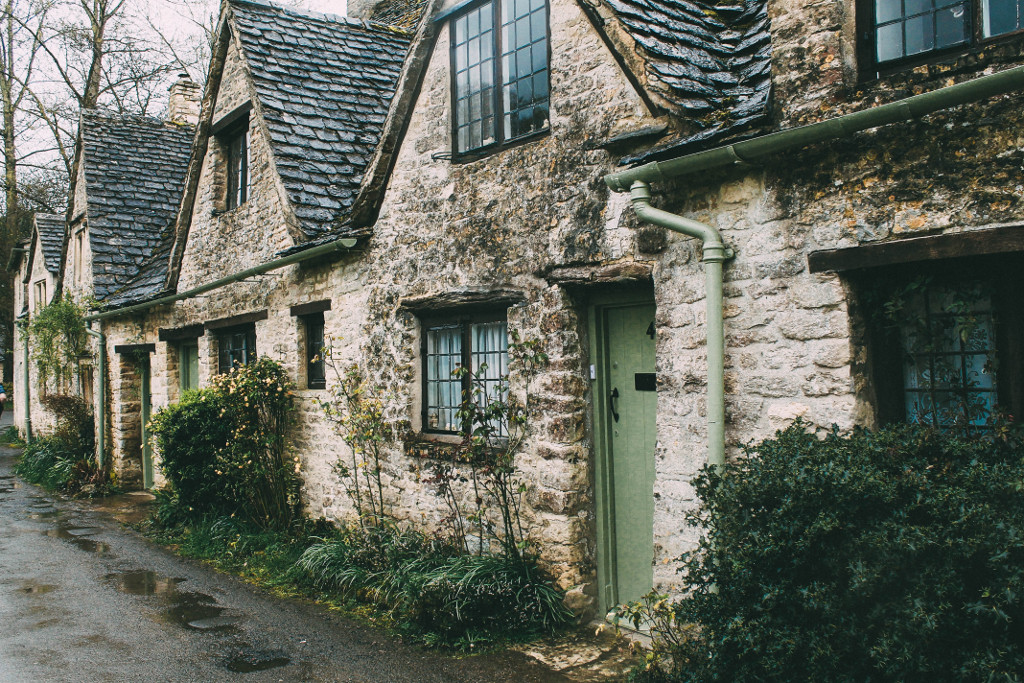The State Of Britain's Ageing Homes Has Become A National Shame
As temperatures continue to rise and energy costs surge, the Royal Institute of British Architects (RIBA) President, Muyiwa Oki, highlights the critical need for the upcoming general election winner to address the state of Britain's ageing homes has become a national shame.
George EvansFeb 22, 2024245 Shares5697 Views

As temperatures continue to rise and energy costs surge, the Royal Institute of British Architects (RIBA) President, Muyiwa Oki, highlights the critical need for the upcoming general election winner to address the state of Britain's ageing homes has become a national shame.
Last summer, sweltering conditions left many UK residents struggling to escape the heat, while recent near-zero temperatures forced others to grapple with rising energy costs and heating decisions. The state of the nation's aging homes has become a cause for concern, posing dangers and discomfort to inhabitants.
Global warming breached the 1.5-degree threshold over 12 months, marking the second-hottest year on record for the UK. With heatwaves and floods on the rise, urgent measures are required to decarbonize the built environment, as buildings account for nearly 40% of global energy-related carbon emissions.
Despite these alarming trends, the message to prioritize retrofitting the UK's housing stock isn't resonating with political leaders. The Labour Party, for instance, announced a reduction in funding promises for home-insulation projects should they win the election, scaling back from £6 billion per year to £1.3 billion annually over five years.
Prime Minister Rishi Sunak's decision to scale back key green policies, including delaying the ban on certain boilers and scrapping energy-efficiency improvements for the private rented sector, further raises concerns.
The RIBA emphasizes the need for a national retrofit strategy, urging the government to invest in a well-funded, long-term plan to enhance energy efficiency and climate resilience. Such a strategy could not only reduce the climate impact but also create jobs, boost green skills, and improve prosperity across the country.
To incentivize homeowners and landlords, the RIBA suggests a financing strategy that makes energy-efficiency upgrades affordable, possibly through tax incentives like a sliding scale of stamp duty and tax rebates. This, combined with a fabric-first, whole-house retrofit approach, could ensure changes are made in the right order and at the right time, avoiding unintended consequences like dampness and mold.
The RIBA's 2020 Greener Homes report proposes tax incentives and rebates, recognizing that homeowners are more likely to make upgrades shortly after purchasing a property. In the private rented sector, landlords could be incentivized through income-tax deductions.
A nationwide retrofit program is not only unprecedented but also an opportunity to address the larger issue at hand. Millions of people live in inefficient homes, and failing to act condemns the population to decades of substandard housing. The RIBA calls on the next government to turn this challenge into an opportunity to demonstrate global climate leadership and stimulate the green economy.
Final Words
Urgent action is needed to address the UK's outdated housing crisis amid escalating climate challenges. The upcoming election is a crucial opportunity for political leaders to prioritize a national retrofit strategy, investing in long-term plans that not only combat climate change but also stimulate job creation and prosperity. It's a call for visionary leadership to transform the challenge of retrofitting millions of homes into an opportunity to showcase global climate leadership and boost the green economy.
Jump to
Latest Articles
Popular Articles